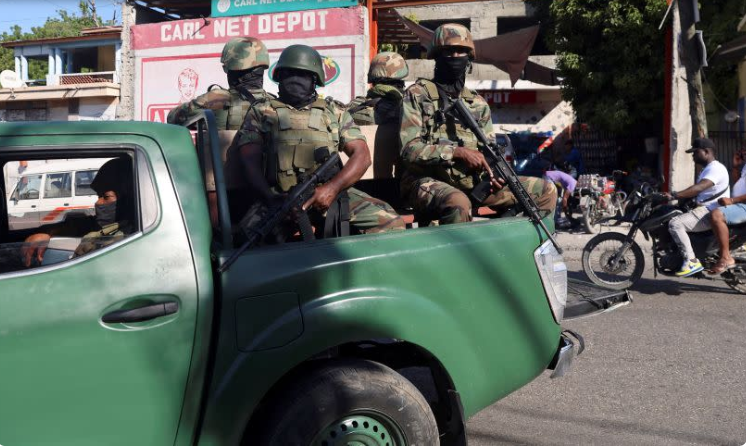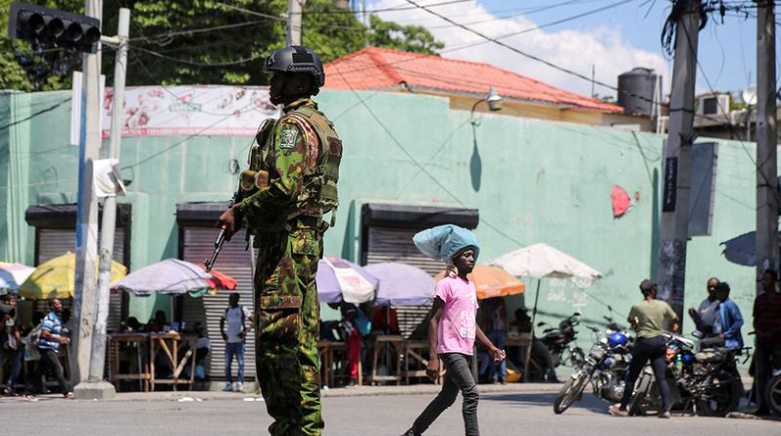Introduction
Haiti has witnessed countless tragedies stemming from its history of political instability, natural disasters, and gang violence. However, the recent massacre of 184 voodoo practitioners, primarily elderly individuals, by a gang leader has sent shockwaves across the nation and the world. This atrocity, reportedly driven by the gang leader’s belief that his son’s illness was caused by voodoo curses, highlights the grim intersection of superstition, violence, and societal fragility in Haiti.
This article delves into the horrifying events, the societal factors that allowed such violence to occur, and the broader implications for Haitian society and governance.
The Incident: A Heinous Act Unfolds
The Catalyst: A Son’s Illness
The gang leader, identified as one of Haiti’s most notorious crime figures, allegedly embarked on this brutal campaign after his young son fell gravely ill. Convinced that voodoo practitioners were responsible for casting a curse on his family, he ordered his men to eliminate them.  For the more information click on this link
For the more information click on this link
Targeting Voodoo Practitioners
The victims were predominantly elderly voodoo practitioners, many of whom were respected members of their communities. The attacks spanned multiple rural villages, with gang members storming homes, dragging individuals out, and brutally executing them.
Methods of Violence
Eyewitnesses reported that the methods used were barbaric, including public executions, arson, and mutilations. Families were left devastated, and entire communities were uprooted, fearing further violence.
Haiti’s Relationship with Voodoo
Cultural and Religious Significance
Voodoo is deeply rooted in Haitian culture, blending African traditions with Christian elements. Practiced by a significant portion of the population, it is often misunderstood and stigmatized.
History of Persecution
This tragic event is not the first instance of violence against voodoo practitioners. Historically, voodoo has been scapegoated during periods of societal unrest, with practitioners often accused of witchcraft and other supernatural wrongdoings.
The Role of Gang Violence in Haiti
Rise of Gangs
Haiti’s weak governance and economic struggles have allowed gangs to flourish. These groups often operate as de facto authorities in areas where the state’s presence is minimal.
Control and Fear
The gang leader behind this massacre controls vast swathes of territory, enforcing his rule through fear and violence. Local populations often have little choice but to comply with gang demands.
Intersection of Superstition and Power
This incident highlights how superstition can fuel violence in a society already plagued by instability. The gang leader’s actions were not only a display of his power but also a reflection of deeply ingrained cultural beliefs.
Impact on the Victims and Their Communities
Loss of Life and Trauma
The massacre has left a trail of grief and fear. Families are mourning loved ones, while survivors struggle to comprehend the scale of the violence.
Displacement and Fear
Many residents have fled their villages, leaving behind homes and livelihoods. These internally displaced persons add to Haiti’s growing humanitarian crisis.
Cultural Erosion
The targeting of voodoo practitioners represents an assault on a significant aspect of Haitian identity. Their deaths signify not only a loss of life but also a loss of cultural knowledge and traditions.
Government and International Response
Haitian Government’s Reaction
The Haitian government, already struggling with political instability, has condemned the violence. However, its capacity to address such crimes is limited due to inadequate resources and corruption within law enforcement.
Calls for Justice
Human rights organizations have called for an independent investigation into the massacre. They emphasize the need to hold the perpetrators accountable and to provide support for the affected communities.
International Aid
Global organizations, including the United Nations, have expressed concern and pledged support. However, their efforts are often hampered by the volatile security situation in Haiti.
Broader Implications
Erosion of Social Fabric
This tragedy underscores the fragility of Haiti’s social cohesion. The targeting of a specific group based on superstition reflects deep-seated divisions and mistrust within society.
Challenges for Governance
The massacre highlights the government’s inability to protect its citizens and maintain law and order. Strengthening state institutions is essential to prevent such atrocities in the future.
Cultural Preservation
The loss of so many voodoo practitioners poses a threat to Haiti’s cultural heritage. Efforts to preserve and promote understanding of voodoo are crucial in combating stigma and fostering national unity.
Expert Opinions
Sociologists on Superstition and Violence
Experts argue that superstition often becomes a tool for justifying violence in societies with weak education systems and limited access to healthcare. Addressing these root causes is essential for long-term change.
Human Rights Advocates
Human rights activists emphasize the importance of justice and accountability in preventing future atrocities. They call for stronger protections for vulnerable groups, including religious minorities.
Policy Recommendations
Analysts suggest that international aid should focus on strengthening Haiti’s judicial and law enforcement systems. Empowering local communities through education and economic opportunities is also critical.
The Path Forward
For the Haitian Government
- Strengthen Law Enforcement: Invest in training and resources for police and military forces to combat gang violence effectively.
- Promote Cultural Understanding: Launch awareness campaigns to combat stigma against voodoo practitioners and other marginalized groups.
- Support Victims: Provide financial and psychological support for survivors and displaced families.
For International Partners
- Increase Aid: Prioritize funding for initiatives that address the root causes of violence, such as poverty and lack of education.
- Advocate for Accountability: Support independent investigations and pressure the Haitian government to prosecute those responsible.
 For the more information click on this link
For the more information click on this link
For Haitian Society
- Foster Unity: Promote dialogue and understanding among different cultural and religious groups.
- Reject Violence: Encourage communities to stand against violence and support peaceful conflict resolution.
Conclusion
The massacre of 184 voodoo practitioners in Haiti is a grim reminder of the consequences of superstition, weak governance, and unchecked violence. This tragedy calls for urgent action to address the root causes of such atrocities and to ensure justice for the victims.
Haiti’s path to recovery will require concerted efforts from its government, civil society, and the international community. Only by working together can the nation overcome its challenges and build a future where such horrors are a thing of the past. ALSO READ:- A New Political Bangladesh Ex-PM Hasina Labels Yunus Regime ‘Fascist’: Controversy 2024




